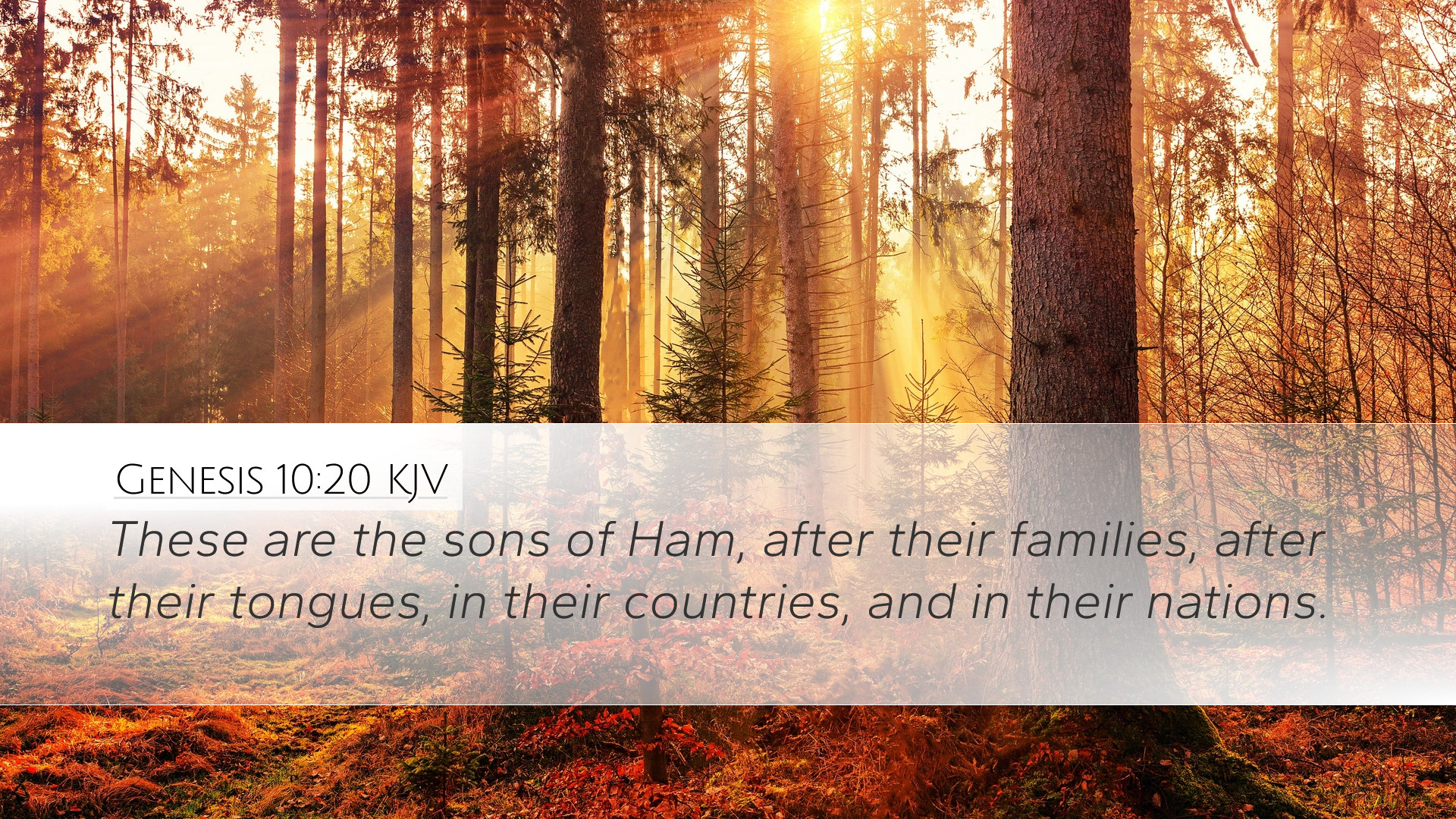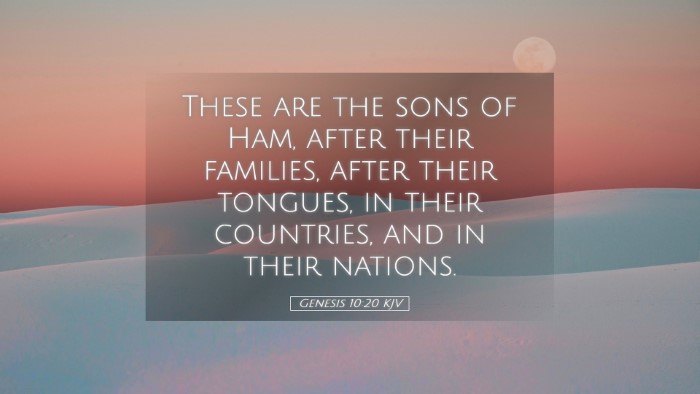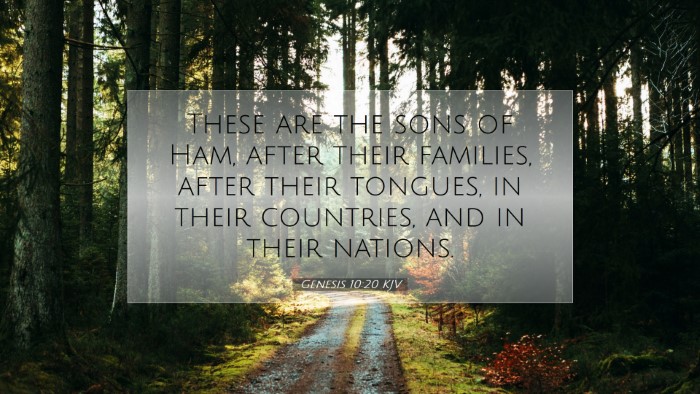Commentary on Genesis 10:20
Verse: "These are the sons of Ham, after their families, after their tongues, in their countries, and in their nations." (Genesis 10:20)
Introduction
Genesis 10 serves as a genealogical record commonly referred to as the Table of Nations.
It marks a significant moment in biblical history, illustrating the expansion of humanity post-Flood.
Here, Genesis 10:20 focuses on the descendants of Ham, one of Noah's sons.
Overview of the Context
This chapter outlines the lineage of Noah's three sons: Shem, Ham, and Japheth.
Each section details their descendants, highlighting not only their names but also the nations and regions they inhabited.
Genesis 10:20 specifically pertains to the sons of Ham, emphasizing their roles in the development of various nations and cultures.
Interpretations of Key Terms
-
Families:
The term "families" signifies the clans or extended groups that stem from Ham's lineage.
This indicates a structured society where familial ties dictate social organization.
-
Tongues:
The reference to "tongues" underscores the linguistic diversity that resulted from the dispersal of nations.
Each family developed its own language, reinforcing unique cultural identities.
-
Countries:
"Countries" refers to the land occupied by these descendants. It signifies the geographical expansion and settlement of various nations historically linked to Ham.
-
Nations:
"Nations" encapsulates the collective political and social entities borne out of Ham's descendants,
which played crucial roles in the ancient Near East and beyond.
Theological Implications
The listing of Ham's descendants serves as a microcosm of God's plan for humanity.
It illustrates how, despite the fall and the Flood, God continues to engage with His creation through diverse nations and cultures.
Albert Barnes emphasizes the importance of understanding these descendants in the context of their historical significance,
suggesting that such genealogies serve to affirm God's enduring sovereignty over nations.
Historical and Cultural Context
Ham's descendants are often associated with regions historically known for their remarkable cultural developments,
including Egypt, Cush (Ethiopia), and Canaan. Adam Clarke points out that this ancestral lineage set the stage for various scriptural narratives,
particularly those relating to Israel's interactions with these nations.
Pastoral Application
Pastors can derive significant lessons from this verse in relation to their ministries.
The diversity represented in Genesis 10:20 encourages the cultivation of inclusive communities that celebrate various backgrounds and tongues.
Additionally, this verse serves as a reminder of God's providence in history and His plans amidst human multiplicity.
Pastors should foster understanding and unity within their congregations to reflect God's kingdom, which spans across cultures and nations.
Conclusion
Genesis 10:20, while genealogical in nature, offers rich theological and cultural insights.
It invites deeper reflection on how God includes diverse peoples in His narrative of redemption and how humanity’s divisions echo the complexity of His creation.


